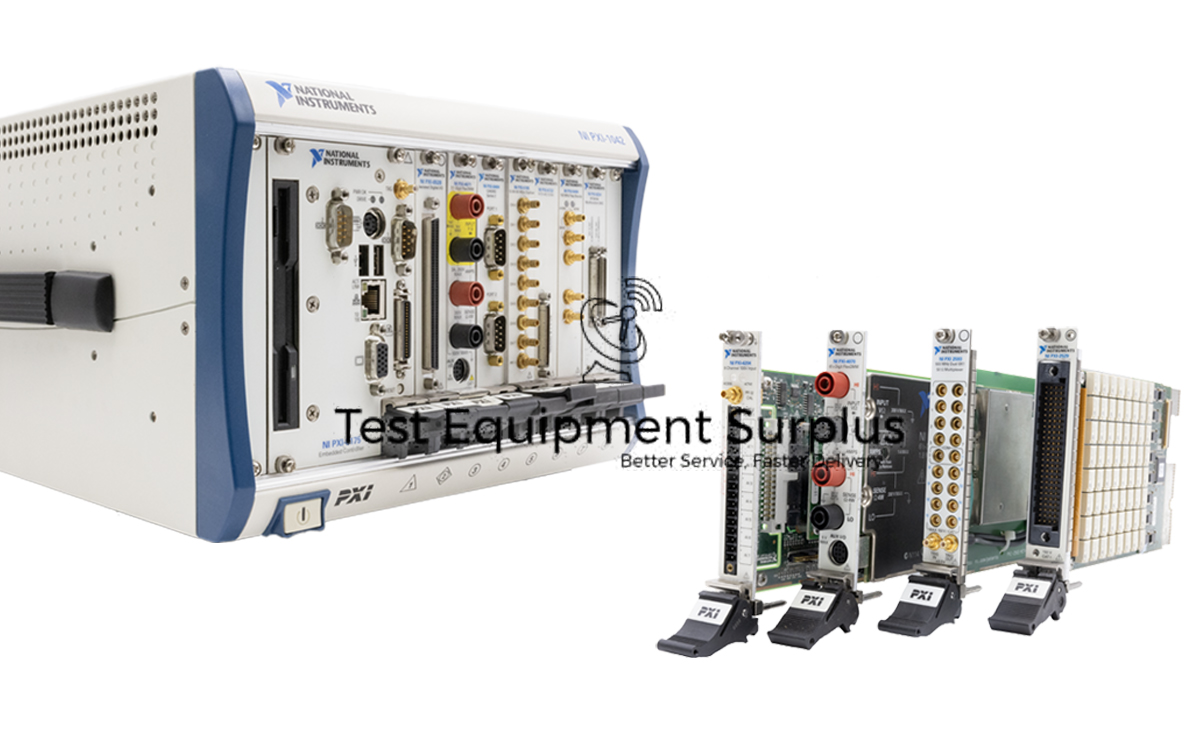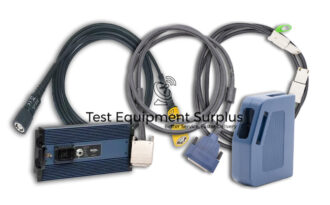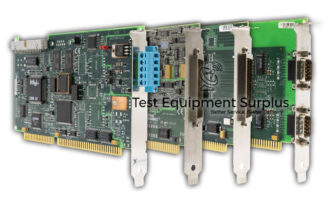Description
The National Instruments PXIe-7820, including part numbers PXIe-7820, PXIe-7820R, and 783484-01, is a versatile PXI Digital Reconfigurable I/O Module that features 128 digital I/O channels and is powered by a Kintex 7 160T FPGA for customizable logic operations.
This module is fully compatible with LabVIEW FPGA, allowing users to tailor the functionality of each digital line for a variety of applications including rapid waveform generation, sensor simulation, hardware-in-the-loop (HIL) testing, custom communication protocols, and bit error range testing. The peer-to-peer streaming capability enhances data transfer efficiency between PXI modules.
Each digital I/O channel offers independent direction control, with a minimum I/O pulse width of 6.25 nanoseconds and a minimum sampling period of 5 nanoseconds, ensuring high-speed operations. The module also supports external clock direction input for synchronized tasks.
With a maximum input leakage of ± 15 µA and a characteristic impedance of 50 Ω, the PXIe-7820 maintains signal integrity. Additionally, its power-on state is tristate by default, and National Instruments recommends limiting long-term over/under-voltage exposure to the digital I/O to maintain the module’s longevity and performance.
| Specification | Details |
|---|---|
| Part Number | PXIe-7820, PXIe-7820R, 783484-01 |
| Type | PXI Digital Reconfigurable I/O Module |
| Digital I/O (DIO) | 128 Channels |
| FPGA | Kintex 7 160T |
| Programming Compatibility | LabVIEW FPGA |
| Peer-to-Peer Streaming | Supported |
| Applications | Rapid waveform generation, sensor simulation, HIL testing, custom communication protocols, bit error range testing |
| Direction Control | Per digital I/O channel |
| Minimum I/O Pulse Width | 6.25 ns |
| Minimum Sampling Period | 5 ns |
| External Clock Direction Input | Supported |
| Maximum Input Leakage | ± 15 µA |
| Characteristic Impedance | 50 Ω |
| Power-On State | Tristate (tristate by default; NI recommends limiting long-term over/under-voltage exposure to the Digital I/O) |
Question 1: What are the unique features and specifications of the National Instruments PXIe-7820 that make it suitable for customized logic operations and high-speed applications?
Answer 1: The National Instruments PXIe-7820 module, when used with LabVIEW FPGA, allows for customization of each digital line to facilitate rapid waveform generation, sensor simulation, hardware-in-the-loop (HIL) testing, custom communication protocols, and bit error range testing, providing a wide range of application-specific functionalities.
Question 2: Considering the technical specifications and recommended usage, what measures should be taken to ensure the longevity and performance of the National Instruments PXIe-7820 Digital Reconfigurable I/O Module?
Answer 2: The National Instruments PXIe-7820 module is suitable for applications like rapid waveform generation and hardware-in-the-loop testing due to its 128 digital I/O channels, a powerful Kintex 7 160T FPGA for custom logic, compatibility with LabVIEW FPGA for versatile programming, peer-to-peer streaming for efficient data transfer, high-speed operations with a minimum I/O pulse width of 6.25 nanoseconds and sampling period of 5 nanoseconds, and external clock input for synchronization,
Question 3: What applications are supported by the National Instruments PXIe-7820 PXI Digital Reconfigurable I/O Module’s 128 digital I/O channels and Kintex 7 160T FPGA, and what are its key features related to speed and signal integrity?
Answer 3: The National Instruments PXIe-7820 PXI Digital Reconfigurable I/O Module supports applications such as rapid waveform generation, sensor simulation, hardware-in-the-loop (HIL) testing, custom communication protocols, and bit error range testing, and its key features related to speed include a minimum I/O pulse width of 6.25 nanoseconds and a minimum sampling period of 5 nanoseconds. Regarding signal integrity, the module offers a maximum input leakage of ±15 µA and a characteristic
Question 4: What are the customization capabilities of the National Instruments PXIe-7820 module when used with LabVIEW FPGA in terms of waveform generation and testing procedures?
Answer 4: The National Instruments PXIe-7820 is equipped with 128 digital I/O channels, a Kintex 7 160T FPGA for customizable logic operations, compatibility with LabVIEW FPGA for tailored functionality, rapid waveform generation, sensor simulation, and HIL testing features, along with peer-to-peer streaming for efficient data transfer, direction control for each I/O channel, a minimum I/O pulse width of 6.25 nanoseconds, a minimum sampling period of 5 nanoseconds for high
Question 5: What are the key features and compatibility options that make the National Instruments PXIe-7820 module suitable for applications such as rapid waveform generation and hardware-in-the-loop testing?
Answer 5: To ensure the longevity and performance of the National Instruments PXIe-7820 Digital Reconfigurable I/O Module, users should limit long-term exposure to over/under-voltage conditions on the digital I/O, maintain the signal integrity with a maximum input leakage of ±15 µA and a characteristic impedance of 50 Ω, and use the module within its specified operational parameters, such as the minimum I/O pulse width of 6.25 nanoseconds and a minimum sampling period of 5



